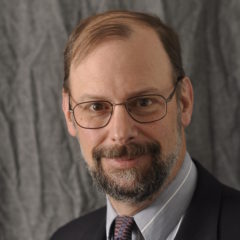21
Jun 2023
How Lovely Are Your Tents
Stuart Rossman
In January 2021, I wrote another article for WexnerLEADS, entitled, “Seeking Synergies in the Age of Covid”. The piece involved a potential opportunity for my synagogue, Temple Reyim of Newton, MA, and Hebrew College to create a shared campus on the Temple’s property. Both venerable, long-established institutions were facing new and daunting existential challenges in the 21st century. The proposed project grew out of our common desire to create a spiritually alive, deeply engaged Jewish communal home that would be strengthened, and in fact made possible, through a collaboration between the mission-aligned organizations. I closed the article by raising the question of whether we would succeed and suggested that you check back with me in a year.
It actually has been over two years now, but I think that I have the answer, or at least the beginning of one. Last month I attended our Tikkun Leil Shavuot held in our beautifully renovated and expanded facility. I was joined in Hebrew College’s new Beit Midrash by friends from Temple Reyim, Hebrew College, and the greater Boston Jewish community to enjoy a program of poetry, singing and learning that truly reflected an exuberant blend of contributions from each of our member institutions. This event, taking place less than 6 months after the creation of our bold, new partnership, was a welcome sign of initial success. It is also a hopeful harbinger of the future possibilities that our joint endeavor can offer as an interdisciplinary hub of Jewish learning, spirituality, and innovation.
Our campus has grown to include 10 organizations engaged in an unprecedented experiment of vertical collaboration between dynamic local and national Jewish organizational partners. In addition to Temple Reyim (an egalitarian Conservative synagogue of approximately 240 member families) and Hebrew College, we are joined by the Jewish Arts, the Jewish Women’s Archive, Kesher Newton Jewish Pluralistic Afterschool Program, Keshet, the Massachusetts Board of Rabbis, Mayyim Hayyim Living Waters Community Mikveh and Education Center, RUACH Community Health, and the Zamir Chorale of Boston. These organizations range the gamut of the Jewish experience, from the very local to the national level.
There were no blueprints or guidebooks to tell us how to accomplish our goals. To the contrary - the effort was an experiment without precedent, subject to trial and error. Mistakes were made and the challenges continue, with many significant obstacles and risks yet to be overcome.
A historical reckoning of our process will be important. There are many lessons to be learned from our experiences that should be memorialized, analyzed, and shared. It would take far too much time and space to recount all of those lessons here. However, based on my participation in the process, I have come up with three fundamental observations that I believe are important to consider for anybody embarking on a similar undertaking.
First, in a major project of this nature, time is both your friend and your enemy. On the one hand, the fact that Hebrew College needed to have a viable space to occupy before its prior facilities no longer were available created a real timeline requiring hard decisions. A special opportunity existed within a narrow window that both anchor participants needed to embrace. That scenario compelled meaningful and decisive action which resulted in a sophisticated and complicated project actually being completed on a very tight schedule. By any standard, it was an impressive accomplishment. On the other hand, the very urgency that made the achievement possible created enormous pressure on the leaderships of the respective organizations and their constituents, who clearly would have preferred more time to share information, exchange ideas, build consensuses and make decisions. Expediency enabled the successful result, but at a real cost in process. The question always has to be asked, when do the ends justify the means?
Second, organizational change is difficult regardless of how successful the ultimate result may be. As necessary decisions are made, some of the stakeholders will be satisfied, while others will not. Some participants will adapt, while others will not. Feelings can be hurt, and expectations can be disappointed. But failure is not an option. Without change, organizations wither and die. Therefore, every effort must be made to recognize, address, and accommodate differences of opinion. Ultimately though, when difficult decisions must be made, there will be inevitable, and sometimes painful, fallout that requires endurance, patience, and attentive responses.
Finally, a commitment to clear communication and transparency of process are critical to ameliorating the institutional problems of time pressure and aversion to change, although they cannot eliminate said problems. We will never know the total impact the Covid crisis had on our project. I believe the pandemic made it immensely more difficult and perilous particularly because it inhibited normal face-to-face contacts and ensured that business was anything but usual. The isolation required by the contagion was anathema to the very type of interpersonal exchanges required by the circumstances. Covid was not the sole cause of our problems, but it exacerbated our challenges exponentially.
In a few weeks, we will read Parashah Balak, Numbers 22:2–25:9. It contains one of my favorite biblical stories. When the Israelites encamp on the Moabite plains, Balak, the king of Moab, hires the seer Balaam to curse them (22: 4–6). Balaam’s first two attempts are blocked by YHWH, and instead of cursing them, the Israelites are blessed with great numbers (22:41–23:10) and military success (23:11–24). The third time, Balaam decides to bless Israel on his own initiative, and delivers the moving and memorable words of “Ma Tovu”: “How lovely are your tents, O Jacob, Your dwelling-places, O Israel!” (24:5). As I prepared this article for WexnerLeads, the coincidental timing immediately came to mind.
The Talmud, aptly in our case, offers an alternative interpretation of Balaam’s blessing and sees the tents and dwelling places of our people as a reference to synagogues and schools of Jewish learning (Babylonian Talmud, Sanhedrin 105b). As the Israelite people overcame their own errors, lack of faith and shortcomings in the wilderness to create a praiseworthy community, my hope and prayer is that our efforts to build our new campus also will be deserving of similar accolades and can serve as a valuable future model for others to emulate.

Get to know the author
Stuart Rossman is a 1993 graduate of the Wexner Heritage Foundation Program. Since 1999, Stuart has been the Director of Litigation for the National Consumer Law Center in Boston, a national low-income consumer public interest advocacy organization. He graduated from the University of Michigan in 1975 and Harvard Law School in 1978,
Stuart was the Chairman of the United Jewish Appeal Young Leadership Cabinet from 1991 to 1992. Locally, Stuart is the former President of the Jewish Community Relations Council. He also is active in the Combined Jewish Philanthropies of Greater Boston, where he has served on its Executive Committee and Board and as the Chair of the Boston/Haifa Connection. Stuart was the former President of the Massachusetts Association of Jewish Federations and Co-President of the Bureau of Jewish Education. He currently serves as a member of the Advisory Committee for the American Society for the University of Haifa.
Stuart and his wife Shelley (former Director, Billy Dalwin Pre-School of Temple Emunah, Lexington, MA) live in Needham, MA. They have two daughters, Jessie (and her husband Carl) and Rina (and her husband Jeff), and twin granddaughters, Rivka and Ziva. They are active members of Temple Reyim, a Conservative synagogue in Newton, MA where Stuart has been a member of the Board and the Executive Committee.

